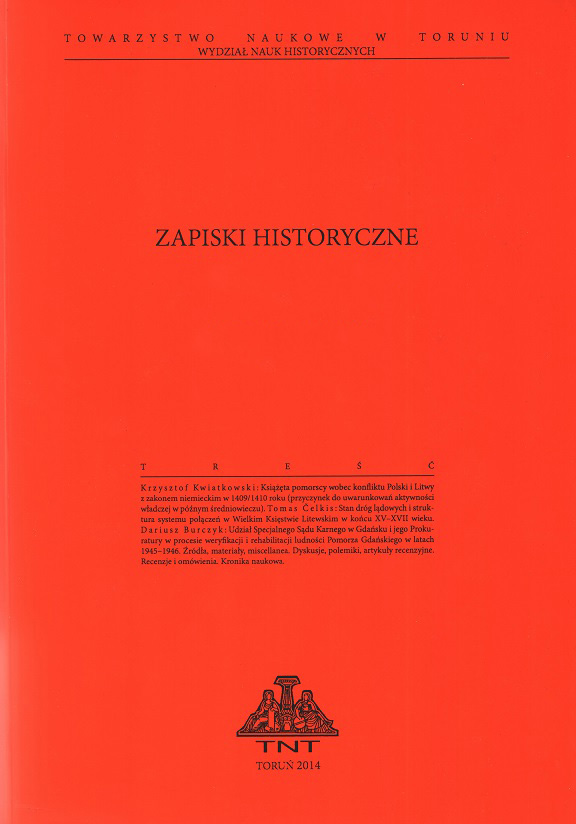Vom Ordensland zum Herzogtum. Religiöse Überzeugung oder politisches Kalkül des Hochmeisters Albrecht von Brandenburg-Ansbach?
From the State of the Teutonic Order to the Duchy – the Evangelical Reformation or Politics?
Author(s): Udo ArnoldSubject(s): History of Church(es), Political history, 16th Century, History of Religion
Published by: Towarzystwo Naukowe w Toruniu
Keywords: the Teutonic Order;Prussia;Reformation;Albrecht von Brandenburg-Ansbach;
Summary/Abstract: The article underlines the fact that Prussia became Protestant prior to Saxony (considered to be the “mother country of the Reformation”) and other German states. After the end of the Thirteen Years’ War one of the problems constituted the relations between the Grand Master and the Polish King as they went beyond the area of politics affecting also religion and law. Having been elected Grand Master Albrecht Hohenzollern introduced significant changes in the political system of the state. He was related to King Sigismund the Old thanks to his mother, who was Sigismund’s sister. It was unusual for the Teutonic Order to have elected twenty-one-year-old Albrecht to be Grand Master as normally the tendency was to appoint the most respectable member of the Order. Albrecht Hohenzollern launched many reforms the aim of which was to centralize the Teutonic administration. Gradually, the corporate style of management was being transformed into a one-person leadership. Albrecht Hohenzollern also planned to carry out religious reforms. That is why he tried to contact Martin Luther. He attempted to establish the first contact with Luther in the years 1521-1522. The next attempt was made by Martin Luther. In 1523 Luther wrote a letter to the Teutonic Order, where he suggested the rejection of the principle of purity and taking over the lands in hereditary ownership by Teutonic brothers as it was done by noble families. In practice, it would have meant the liquidation of the Order. Albrecht refused to accept the ideas, which did not mean that he disliked Luther. Albrecht met Luther at the end of 1523 in Wittenberg. Luther repeated his guidelines to make the Teutonic state a secular duchy. In May 1524 there was another meeting. Taking into account the political situation at that time, the political isolation of the Teutonic Order and the threat to become subjected to Poland, Albrecht decided to convert into Lutheranism. In this way, he made himself independent of the Pope and in the long run he could set up the foundations to make himself less and less dependent on Catholic Poland. Owing to secularization, Albrecht saved his personal rule and transformed the monastic state into the first Protestant European country.
Journal: Zapiski Historyczne
- Issue Year: 82/2017
- Issue No: 2
- Page Range: 21-40
- Page Count: 20
- Language: German

